This post has already been read 4338 times!

I’ve been asked the question about including a failed startup or project on a CV or Resume on Quora not once but twice.
Both times, I’ve endorsed its inclusion because I believe it shows a lot about the calibre and qualities of the professional in question that might not otherwise be noticed including leadership skills and the willingness to pursue an idea.
For the professional who took on the adventure of a startup dreaming he would be the next Bill Gates or Steve Jobs or even Jeff Bezos, worked the hours and then found certain things didn’t go the way he or she had expected and instead of an Entrepreneur of the Year Award, found they were saddled with a startup that had gone belly up, it is painful.
If you’ve been a successful employee and a star performer before your startup endeavour, having a pet project failing hits our sense of self-esteem, confidence and fear of lost credibility.
Nobody likes to be a failure – I don’t.
But at the same time, an initial failure can lead to a future success.
Edison’s story of untold success post startup failure
The prolific inventor Thomas Alva Edison was expelled from school because he was considered unteachable.
Imagine, if his mother had not believed in him, perhaps we wouldn’t have had the various inventions that provide essentials in our modern life or it would have taken longer.
If you think Edison got the light bulb to work on his first attempt, then guess again. It took lots more than a hundred.
In spite of all of his failures, Edison was a prolific inventor who had amassed several patents by the time he died, including the light bulb and the movie projector.
It’s all about the mindset, robust planning, getting help when required and having a mentor or coach who can guide you through the uncharted waters of a startup.
Not every startup is a success and many fail despite a successful launch. That’s the way it is.
According to an article in FastCompany, “Why Most Venture Backed Companies Fail,” 75% of venture-backed startups fail with 30 to 40 percent of those liquidating assets where investors lose all of their money.
In a more recent article, I read that according to Forbes, 90% of startups fail.
There are often various factors at play in a successful startup as well as in its failure. Some of these factors could be related to you while others are not your fault.
Predicting the success or failure of a startup is difficult even for seasoned Venture Capitalists so why should a budding entrepreneur take the full fall for failure?
I remember back in the early 2000s, when a number of highly respected colleagues who had years of experience in the banking and finance sector and enviable credentials lost money during the dotcom bubble.
It took them some time to recover the losses but the wealth of experience they acquired helped them bounce back with bigger and better ventures.
In case you were too young to remember the dot com bubble, here is a short 1 minute video about it.
Sure, it’s great if you were successful, but even an unsuccessful startups shows initiative, a variety of experience, and many other positive traits.
It’s not just a mildly positive thing to list; if you position it properly, it can become the best part of your resume and a point that might intrigue the interviewer to ask you about it giving you a chance to showcase your true experience and qualities that can be transferred to the job you’re applying for.
The same goes for professionals who start a business but find they cannot make it work and want to go back to a regular job with a steady income.
Here are 3 good reasons for including your failed startup in your Resume or CV.
Reason 1 – You have gained experience that you otherwise would not have gotten in a job
Let me explain, the experience in itself is a small success because you now know what works and what doesn’t and you would have a better idea of where things went wrong and what you could have done differently.

It could have been a good idea, perhaps even a great idea which sounded good enough on paper for a venture capitalist to invest seed money. But the market might have changed, or the product/service might have been ahead of its time.
Think objectively about the reasons why your venture failed.
Then consider and make a list of all that you learned and what you would do differently.
After that, decide how you will present this information in covering letter, curriculum vitae and interview. The latter is important because this question will definitely come up in an interview.
Make the most of the opportunity to shine.
Reason 2 – Employers are looking for accomplishments
Accomplishments matter more than the job description because they indicate your caliber rather than what you have been trained to do.
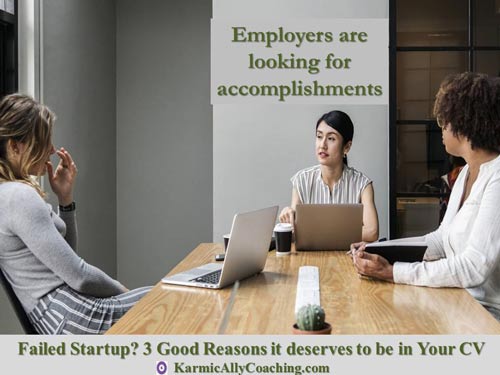
Even in the days when I was in the corporate world, my CV highlighted what I had achieved in a particular position. The interviewer already has an idea about what the previous job would have entailed. They are looking to see if you added value to the previous organization.
For example, being able to say that you had reduced the debtor cycle from 180 to 45 days. This means you improved the cash flow of the company which adds more value than saying you managed the debtor list.
Likewise, in the case of the failed venture, not everything would have been a failure. Focus on what you did achieve.
For example, the number of clients you acquired and closed successfully. The training and employment you provided during the startup. Or even the amount of investment capital or funding you raised in the market.
Reason 3 – Those soft skills are valuable to your future employer
Employers want measurable skills but in today’s world, soft skills matter as you rise up the corporate ladder.
The best way to demonstrate them is to incorporate them into your CV along with tangible facts or better yet, include them while wording your hard skills.
Let me put it into perspective.
The Davos Forum, also known as World Economic Forum, is held every year in Switzerland to discuss and analyze the main issues of international concern. This meeting is attended by the most important leaders worldwide.
The topic for 2016 was key competencies and skills that companies will demand in 2020. Based on a study carried out in 15 countries 10 top soft skills were identified.
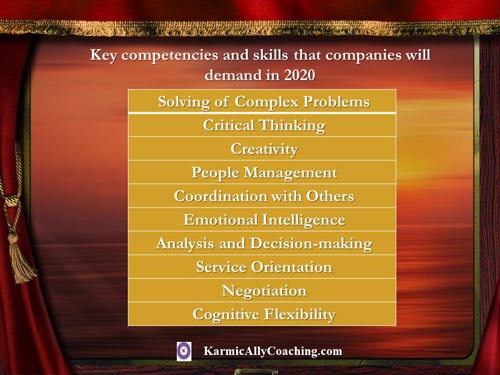
These skills are relevant to any professional who wants to stay in the job market and get ahead in their career.
While formulating your CV or Resume, consider these skills and look for instances where you can demonstrate the skills while documenting your accomplishment statement (which is what we did in Reason 2).
For example, you could write about your skills of cross-functional co-ordination where you worked across departments to ensure that all contracts complied with business requirements.
The wording you use can incorporate soft skills like people management and co-ordination with others.
Update September 2023: What Skills are Relevant in 2023 and Beyond
The needs of the market change as we undergo technological advances and new industries. As professionals, while our existing skills are important, we need to be ready to upskill or upgrade our skills as required.
The World Economic Forum’s Future of Jobs 2023 report finds analytical thinking, creative thinking and AI and big data will be top in-demand skills by 2027.
Leadership and social influence and curiosity and lifelong learning are among other skills expected to see growing demand.
Six in 10 workers will require training before 2027, but only half of workers are seen to have access to adequate training opportunities, according to the report.
In the future jobs market, it will pay to have skills that are in demand.
The World Economic Forum has predicted these likely skillsets – and how demand for them could grow – in its Future of Jobs 2023 report.
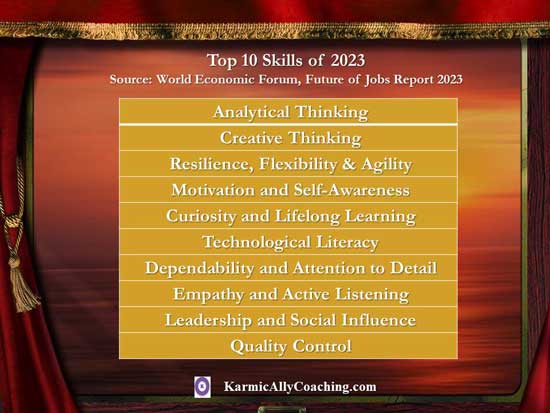
The report further states that between now and 2027, businesses predict that 44% of workers’ core skills will be disrupted. This is because technology is moving faster than companies can design and scale up their training programmes.
Here are some key growth skills for workers and employers wanting to stay ahead of the change curve.
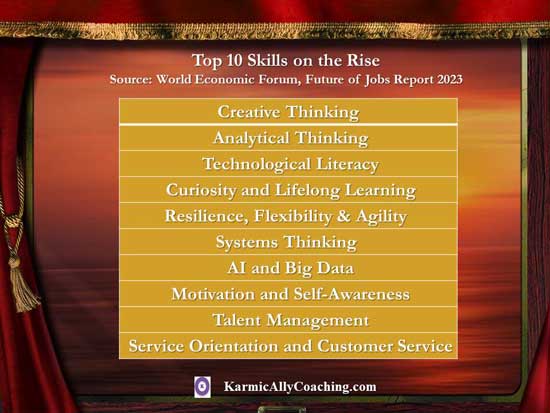
Final words
If I haven’t already convinced you that it is fine to include your failed project in your CV, then here is a statement of fact that you need to consider.
Your startup might have failed but, and this is an important but, you had the courage to step out of your comfort zone and take initiative on an idea. You worked to make it happen or at least hit some milestones. Your investors liked your idea enough to invest money in it.
You have already proven that you are a leader and can not only think of creative solutions but are able to do the critical thinking to plan and implement those solutions.
Startups have chaotic environments often requiring on the feet thinking. You’ve done it and survived.
Positioning this information properly, you’ll demonstrate many traits that employers would find valuable. If an upgrade of skills is required, they would sponsor it because you’re valuable.
Besides that’s the kind of hands-on experience worth sharing proudly, right?
PS. Want to polish up your CV? Click below to pick up my 19 tips with my compliments.


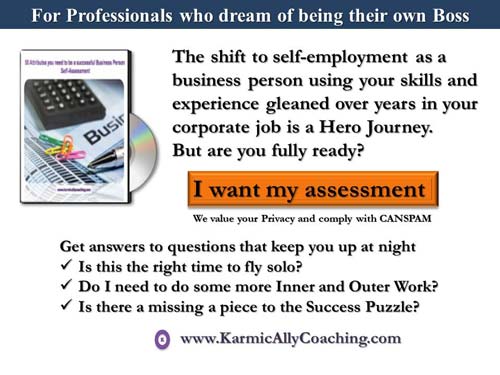
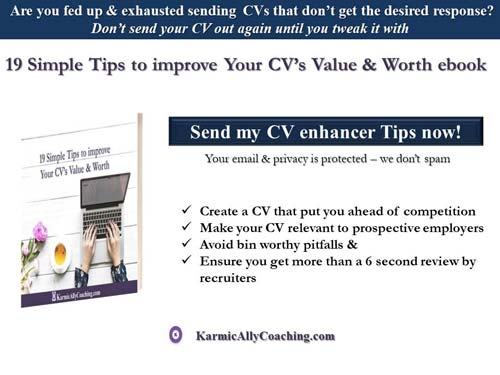

 I adhere to the Certified Coaches Alliance Code of Ethics and Standards. A copy is available on request.
I adhere to the Certified Coaches Alliance Code of Ethics and Standards. A copy is available on request.
 Let's Talk through the Connect Form:
Let's Talk through the Connect Form:
Congrats on a great post. That thing about Edison being expelled is SO COOL! I love knowing things like that. I’m def sharing that tidbit at my next party!
I love little trivia too, Liz. Excellent conversational pieces at parties while also inspiring us to not give up on ourselves but keep moving forward in positive motion.
Very well articulated and good food for thought. Times are changing and so does the process of hiring, it’s okay to show your failures to our prospective employers. The important thing being how are you showcasing the learning out of the failures and whether it has really made you a better version for the job in hand. All in all, just be natural!
Thank you for sharing your insights and knowledge about the present hiring process, Rahul, and for confirming that we do not have to worry about showing our failed startups to prospective employers as long as we showcase our learning.
These are some great tips here! I love how your approach is based in authenticity.
Thank you Zeenat for your kind words. If more than 1 person asks me a question on Quora, then I know there are others who would also benefit from an answer and even solution.
As someone who’s started and ended a couple of business ventures, this is a very insightful article. Afterwards I’ve had a few interviewers question why I “failed” (their word) my business as if I would poison theirs. Silly people. Failing can be contagious only if you believe it is! As always, thanks for sharing your insight and pearls of wisdom.
I wonder if those interviewers thought failure was contagious like the flu, Cindy. 🙂 I’m grateful you’ve shared your experience with us. Most probably the question is being asked on Quora because the querant has had a similar experience.
It’s always best to be honest and up front with a potential employer. With today’s technology and social media, it will all come out anyway. Employers value honesty and experience.
I agree with you 100% Barb. Employers do verify what the candidate is asserting and one of the first things HR would do is run a Google search on you as well as a LinkedIn check – apart from other verification processes if the job position is sensitive. I’d written about that in my post on staying in integrity and not sprucing up the CV with false information. I guess this is the other side of the coin. 🙂
I LOVE this. As someone who has failed and restarted, I never considered THIS approach. Thank you. Sharing.
I’m happy, Laura, to provide you with a different perspective on a failed startup. You aren’t alone, there are so many others who take it as a sign of failure and worry about showing it in resumes or even mentioning their experience, when in fact, it is a feat to be admired. Not everyone has the motivation and drive to follow through an idea and try to make it work.
Awesome blog Vatsala.
So inspiring and encouraging tooooo.
Thank you for sharing. I most appreciate it.
Thank you Leila!
Very good idea that gives food for thought. I can definitely see the value of especially including what you learned from the whole experience, and otherwise find ways to share how the experience has helped you grow or given you new skills and insights. Thanks for sharing.
Thank you for sharing your insights, Marianne. No experience ever goes waste and can always be used to help others along the same path.